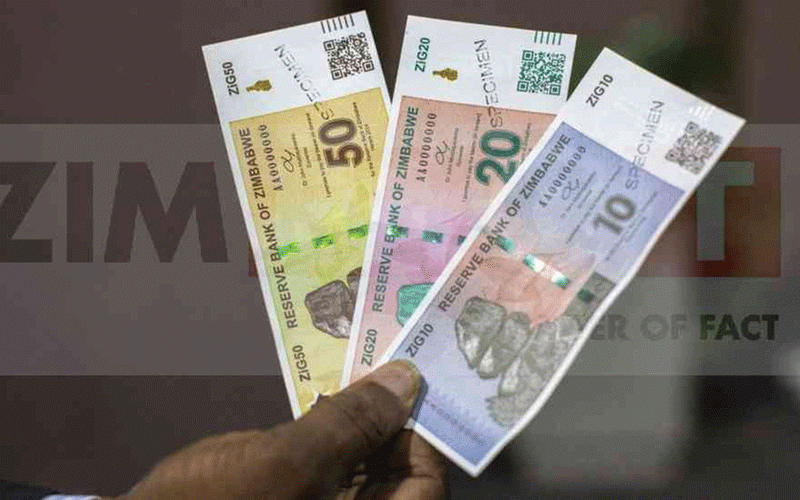EXPERTS say government is on course to repeat the same mistakes it made early this year pertaining to exchange rate and taxes.
This year saw the introduction of Zimbabwe’s latest domestic currency, the Zimbabwe Gold (ZiG), in April. The currency was introduced with the assurance from authorities that it was adequately backed by foreign currency reserves.
However, by September, the domestic currency experienced a double-digit depreciation in its value.
It had lost about half of its value as of Friday last week.
Economic analyst Victor Bhoroma told NewsDay Business that government’s failure to allow the exchange rate to be market-driven would impact businesses that were sticking with the local currency, such as retailers.
- The Sound of Power: Meet the Influential Indian in Africa Making Waves – Prateek Suri
- Khayah slips into corporate rescue as US sanctions bite
- National Foods shareholders approve delisting, share buyback
- Future of green energy in mining: Zimbabwe’s bold transition
- Mineral sales drop to US$2,6bn in 11 months
“In terms of the monetary policy, there is not going to be a change. The central bank continues to have its way on the foreign exchange market in terms of pegging the exchange rate that is being used by commercial banks,” Bhoroma said.
“But overall, some sectors are experiencing difficult times, for example, the retail sector, you know, the formal retail sector struggling, wholesale and retail, they are very much struggling. Those that can be able to buy and sell in US dollars, are doing and will continue to do quite well because they are more reliant on diaspora remittances that are oiling household demand.”
He also noted that the electricity generation deficiency had not been adequately addressed, which would result in low production in different sectors of the economy.
“You can also see that the mining sector will be impacted as electricity has just been the key problem and it still is impacting production, but otherwise, investment has been very good in the mining sector. For agriculture, it remains a very big problem, and even the manufacturing sector,” Bhoroma
said.
Mining is a key export-driven business that provides most of the foreign currency reserves that back the ZiG, apart from agriculture.
UK-based economist Chenayimoyo Mutambasere raised concerns about the potential impact of the tax regime on the small and medium sectors and the farming sector.
Earlier this year, the government introduced a wealth tax, sugar tax and Domestic Minimum Top Up Tax while also raising passport fees, toll fees and fuel levies.
For 2025, Treasury will introduce a plastic bag tax, betting tax, rental income tax and fast-food tax that are effective January 1.
“The economy is highly taxed, which means that our domestic market will not have adequate resources to spend locally on goods and services, affecting the investment climate. It also means that things that were previously affordable are no longer affordable, which will reduce the demand for those goods, particularly in the services industry,” Mutambasere
said.
“The services industry is one of our strongest industries in Zimbabwe, so if we are now going to attack that industry through these taxes on fast foods, it means that the demand is going to reduce. When demand reduces because of the increase in prices, this is going to have a knock-on effect on the small to medium enterprises, the growers, the chicken farmers, the wheat farmers, the potato farmers.”
She prijects decrease in demand for food services in the medium term.
“And this is going to weaken our domestic market, especially in terms of the small to medium enterprises, which will also be at risk because of the taxes being levied on the informal sector,” Mutambasere said.













